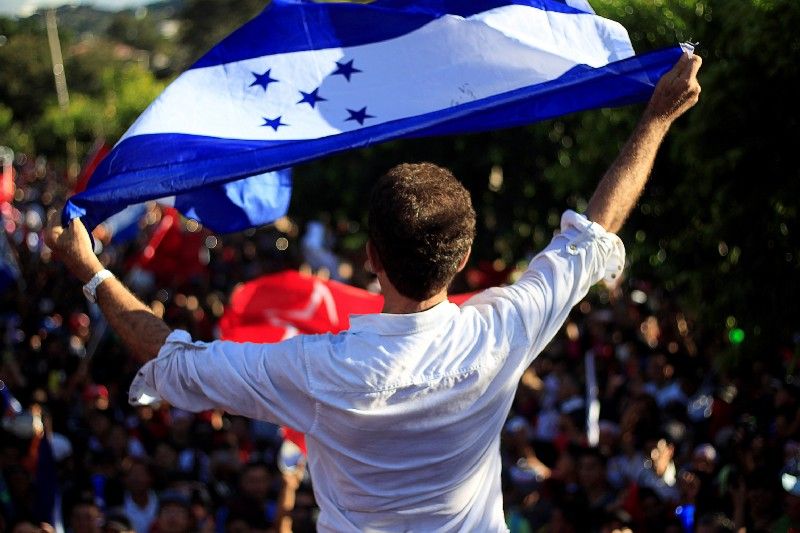Often the biggest international stories are reflected in the world’s smaller countries. This week we peer into two little mirrors…
Honduras: Violence flared in Honduras as both candidates in last week’s presidential election claimed victory following a mid-vote shutdown of the electoral commissions systems. The opposition candidate, popular TV host Salvador Nasralla, accuses the US-backed incumbent, Juan Orlando Hernandez, of rigging the vote. A curfew is in place and a recount is underway.
Washington has a security problem: Hernandez is DC’s main man in Central America these days — the US has given him millions to bolster security in one of the Western Hemisphere’s most violent countries, in part to stop the flow of drugs and people northward to the US.
Democracy has a tech problem: Contested election outcomes are nothing new (remember hanging chads?) but as technology plays a greater role in elections, we can’t help but wonder if the legitimacy of votes will suffer as a result. Loosely speaking, democracy has both a hardware problem and a software problem.
The hardware problem: are electoral systems hackable? And even if they aren’t, will people perceive them to be in ways that undermine electoral outcomes even if they aren’t fraudulent?
The software problem: democracy depends on trust and good information. Fake news and poorly informed voters are certainly not new. But social media vastly expands the velocity, reach, and impact of fake news: even if you can’t hack a vote count, can you effectively hack a voter? In an atmosphere of growing polarization, people are increasingly likely to regard their fellow citizens’ choices as illegitimate.
Cambodia: Strongman Hun Sen, who has ruled for more than 30 years, recently cracked down on the country’s growing opposition party, which he accused of plotting a US-backed coup. The US, which has funneled aid to Cambodia to support a now-dubious transition to democracy, threatened to cut some funding as a result. Sen, unfazed, said he’d rather Uncle Sam get out entirely. One reason he is so comfortable bucking the US is that China now dwarfs the West in providing aid and investment to Cambodia.
The bigger story: China has been mobilizing massive resources to make new, and often authoritarian, friends in the region, and Beijing attaches far fewer political or human rights conditions to its money, and Washington’s uncertain commitment to the region opens more room for China to expand its influence. The soft power geography of Asia is steadily tilting towards Beijing.
